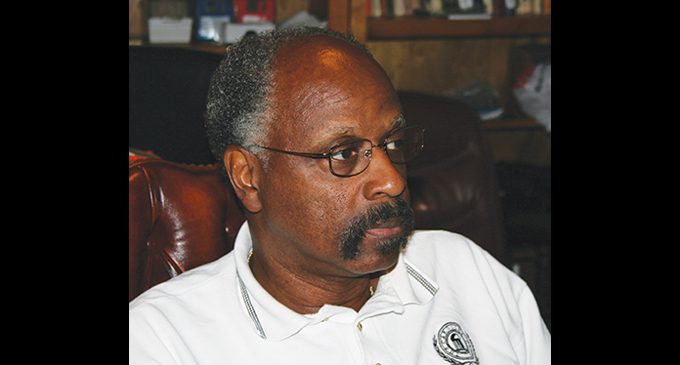Commentary: Acceptable corruption
Richard A. Davis

By Richard A. Davis
A cynic might say we don’t learn from history, we rewrite it. But looking at yesterday through the prism of today can be tricky.
Baseball, “the thinking man’s game”, was once thought to be beyond a black man’s abilities; then in walked Jackie Robinson, mythologized as uniquely qualified to “break the color barrier.” In truth, he was just the first. It’s not that he wasn’t special, he was – he just wasn’t unique.
None of us are. Ordinary white men, on and off the field, relented and the color barrier crumbled like the Walls of Jericho. Their willingness to ban men who didn’t look like themselves from major league sports was steeped in bigoted, armchair wisdom.
Acceptable corruption like this is an unscrupulous act done for the greater good. We overlook it because it’s the kind of thing we might do ourselves, or someone like us might, or because it didn’t harm us, or someone like us. Does it matter? Well, if it happens to us or to someone we love, yes.
Here’s how Senate Majority Leader Mitch McConnell greeted our first black president: “The single most important thing we want to achieve is for President Barack Obama to be a one-term president.” Senator McConnell and his election night cabal set out to block every effort this new president made. In other words, they wanted to make sure a president who didn’t look like themselves failed. Imagine the antics of that scurrilous cabal if Barrack Obama had needed the extended learning curve that’s now so evident for President Donald Trump. Through the prism of time we will come to see all this as prejudice sullied by experience.
President Obama’s successor said, “I could stand in the middle of Fifth Avenue and shoot somebody and wouldn’t lose any voters.” Such brashness evinces a sense of entitlement and privilege: he feels that he can say or do anything he chooses. Who wouldn’t want that for himself, or his son? But he’s hardly the first president allowed to disguise his bigotry as patriotism, his hatred as hope, and his nativism as strength, but he is the first to be praised for it as a panacea for despair when jobs go away, as his manifesto to “drain the swamp” leaches into kakistocracy. Make America Great, Again!
The media is of no help in separating the wheat from the chaff. Under the cloak of “fair and balanced,” it offers a flimsy critique of the candidate and the 40 percent of Americans willing to admit they support him, never quite condemning this unholy alliance for some of the most deplorable conduct in American political history; egregious acts of hooliganism that the rest of us claim run counter to our most cherished beliefs.
It’s a panegyric fallacy to praise him for sensing the pulse of America, or for manipulating the media, when both identify with him for the mother’s milk each craves. After all, seeds only grow in fertile soil.
We rarely acknowledge stereotypes ascribed to us because we identify with the attributes we like and cast off others. And because we’re never quite as good or as bad as we’re alleged to be, pundits are loath to ascribe sinister motives or animus even to a miscreant; so be it. But we’ve had our oracular warning: “When people show you who they are, believe them.”
Let’s face it: “Fair and balanced” is code for ratings. Unbiased reporters seek the truth, allow the facts to lead the way and present more than two sides of multifaceted issues. They are disingenuous when they say that Hillary Clinton didn’t reach out to “forgotten Americans,” or didn’t discuss policies, when they know full well the electronic media gave her opponent a free bullhorn and short shrift to Russian interference, campaign shenanigans, FBI overreach and media profiteering. That selfsame media now champion the #MeToo movement for confronting comedian Bill Cosby’s despicable behavior, while overlooking the equally despicable behavior of another celebrity because he “totally denies” it. Especially since it never set the template straight about Emmett Till and Twana Brawley – a black boy lynched after being falsely accused of whistling at a white woman, and a black girl, now a woman, who was never believed when she accused several white police officers of rape. Such history as a guidepost is more than useless; it’s downright dangerous.
We can learn to accept any level of corruption and debauchery, but like Sodom, where will we find 10 righteous men to save us? In his own desperate search, Diogenes couldn’t find a single one!
Richard A. Davis is a social psychologist who writes about acceptable corruption in public institutions – an ordinary evil. He lives in Pfafftown, N.C.











